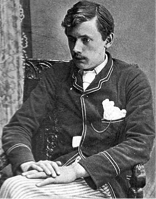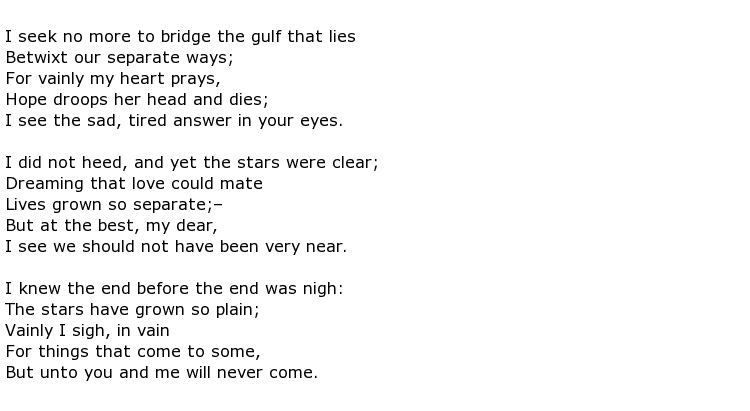 Ernest Christopher Dowson was a 19th century English writer who aligned himself with other literary and artistic figures of the time who were, collectively, called Decadents. In his short lifetime he was a writer of short stories, novelist and poet and he also carried out a number of translations of French novels into English.
Ernest Christopher Dowson was a 19th century English writer who aligned himself with other literary and artistic figures of the time who were, collectively, called Decadents. In his short lifetime he was a writer of short stories, novelist and poet and he also carried out a number of translations of French novels into English.
He was born on the 2nd August 1867 in the south east London district of Lee into reasonably comfortable circumstances. His parents had a dry-docking business in Limehouse and he was Alfred Dome”s great nephew, who made his living as a politician – and eventually took the role of Premier of New Zealand. Dowson was bright enough to win a place at Queen’s College, Oxford but he did not complete his studies, leaving in March 1888 without a degree.
It was, perhaps, this educational failure that contributed to his carousing around the music halls and drinking establishments over the next few years. His father had taken him into the family business but he preferred to seek out the company of students while entertaining the notion of becoming a poet. He became a member of a literary group nicknamed Rhymers” Club, formed in 1890 by the Irish writer William Butler Yeats. Yeats, in fact, later said that Dowson was an inspiration to him and was responsible for much of his own technical development as a poet.
Dowson started to get his work published in publications such as The Savoy and The Yellow Book. He had at least three books of poetry published, these being Verses in 1896 and Decorations in Verse and Prose three years later. In between these two a verse play was published called The Pierrot of the Minute (1897). It is generally believed that he was inspired to write his best poetry by a young woman called Adelaide Foltinowicz. Perhaps the following poem was written with her in his mind. It is called To A Lost Love:

He had met her in 1891 when she was just 12 years old and he had romantic leanings towards her which were never reciprocated despite his close attentions over a period of at least six years. His best known poem was written during that first year of their relationship under the title

which included the line

Knowing that Adelaide would never succumb to his advances, Dowson submerged himself into a hectic social life of wine, women and “mad music”.
His increasingly unhappy life was made worse with the death of both of his parents in quick succession. His father died of an overdose in 1894 and his mother then committed suicide the following year. Both were suffering badly with tuberculosis. Dowson went into a serious decline and decided to move to France where he could find more work as a translator. He was back in London a couple of years later though and went to live with Adelaide’s family for a time. His life was spiralling into a pit of depression though and he found himself drinking even more to the point where he was virtually penniless.
The writer Robert Sherard took pity on him and installed him in his home at Catford, making a vain attempt to nurse him back to health. Down lived out his few last weeks there.
Ernest Christopher Dowson died on the 23rd February 1900 at the age of 32. Admired by many other writers, Oscar Wilde wrote the following obituary:


